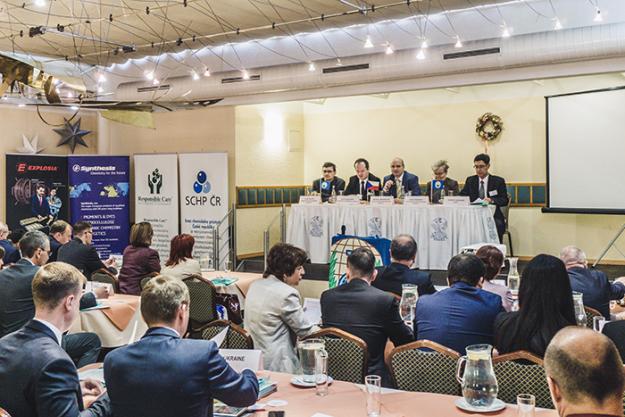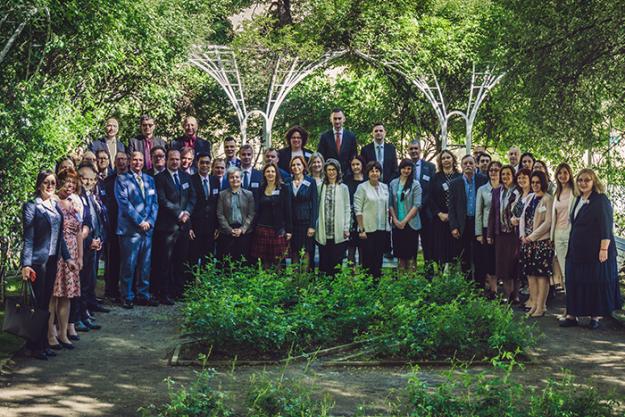
Government and chemical industry representatives from Eastern Europe identified methods to improve oversight of cross-border transfer of the chemicals
THE HAGUE, Netherlands — 28 May 2018 – Government and chemical industry representatives from Eastern Europe identified methods to improve oversight of cross-border transfer of the chemicals scheduled in the Chemical Weapons Convention (CWC), during the 17th Regional Meeting of National Authorities of States Parties in Eastern Europe held in Prague, Czech Republic, from 7 to 9 May.
Chairperson of State Office of Nuclear Safety of the Czech Republic, Ms Dana Drábová, stated in her opening remarks that the meeting would support cooperation and communication among the Member States of the Organisation for the Prohibition of Chemical Weapons (OPCW). “Such an information-sharing and communication-oriented approach strengthens the goals of the CWC, which no State Party can achieve on their own,” she expressed.
Head of OPCW’s Implementation Support Branch, Mr Kesrat Sukasam, reiterated in his remarks that: “Close cooperation and engagement between the National Authorities and relevant stakeholders are indispensable to the effective implementation of the chemical transfer regime under the CWC.”
The National Authorities and chemical industry representatives examined methods to improve data collection for trade and declarations of scheduled chemicals. The participants also discussed ways for chemical industry to better assist National Authorities in resolving cross-border transfer discrepancies.
The deliberations benefitted from substantive contributions and inputs from representatives of different stakeholders, including customs authorities, ministries in charge of monitoring trade of chemicals, World Trade Customs Organization (WCO), International Council of Chemical Association (ICCA), Organization for the Security and Co-operation in Europe (OSCE), and RACVIAC – Centre for Security Cooperation.

The participants improving the oversight of cross-border transfer of the chemicals scheduled in the Chemical Weapons Convention
The National Authorities further discussed diverse national implementation issues and shared good practices and challenges in acting as OPCW focal points for national implementation of the Convention.
This annual regional meeting was attended by representatives from 20 Member States, including Albania, Armenia, Azerbaijan, Belarus, Bosnia and Herzegovina, Bulgaria, Croatia, Czech Republic, Estonia, Georgia, Hungary, Latvia, Lithuania, Moldova, Montenegro, Poland, Romania, Serbia, Slovenia, and Ukraine.
Background
As the implementing body for the Chemical Weapons Convention, the OPCW oversees the global endeavour to permanently and verifiably eliminate chemical weapons. Since the Convention’s entry into force in 1997 – and with its 192 States Parties – it is the most successful disarmament treaty eliminating an entire class of weapons of mass destruction.
Over 96% of all chemical weapon stockpiles declared by possessor States have been destroyed under OPCW verification. For its extensive efforts in eliminating chemical weapons, the OPCW received the 2013 Nobel Peace Prize.
